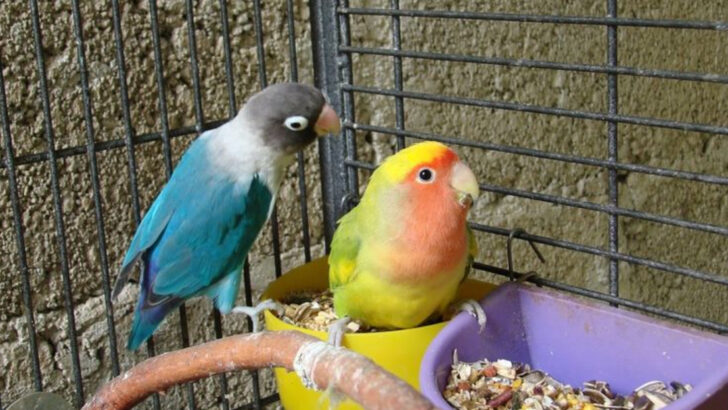A sick lovebird won’t send you a text or leave a note—it’ll speak in subtle changes, and if you’re not paying attention, you might miss the warning signs.
These little charmers are masters at hiding illness, a survival instinct that works in the wild but can spell disaster in a cage. By the time a bird looks obviously unwell, things might already be serious.
Is your lovebird fluffing up like a tiny feathered marshmallow? Sleeping more than usual? Acting grumpy? These could all be cries for help.
Don’t wait for things to get worse. Spotting the early signs of sickness could mean the difference between a quick recovery and heartbreak. Let’s dive into 12 red flags that every lovebird owner needs to know.
Change in Appetite
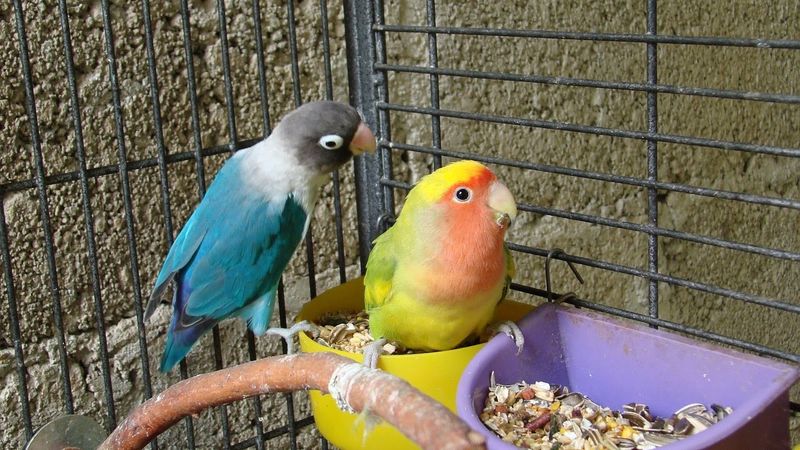
If your lovebird suddenly shows a lack of interest in its food, it might be an indication of illness. Changes in appetite can be subtle at first, but they are crucial signs to monitor closely.
Keep an eye out for untouched food or if your bird is eating significantly less. It’s important to act promptly by consulting a veterinarian who specializes in birds. They can conduct a thorough examination to determine any underlying issues. Encouraging your bird with its favorite treats might help, but professional advice is always best.
Fluffed-Up Feathers
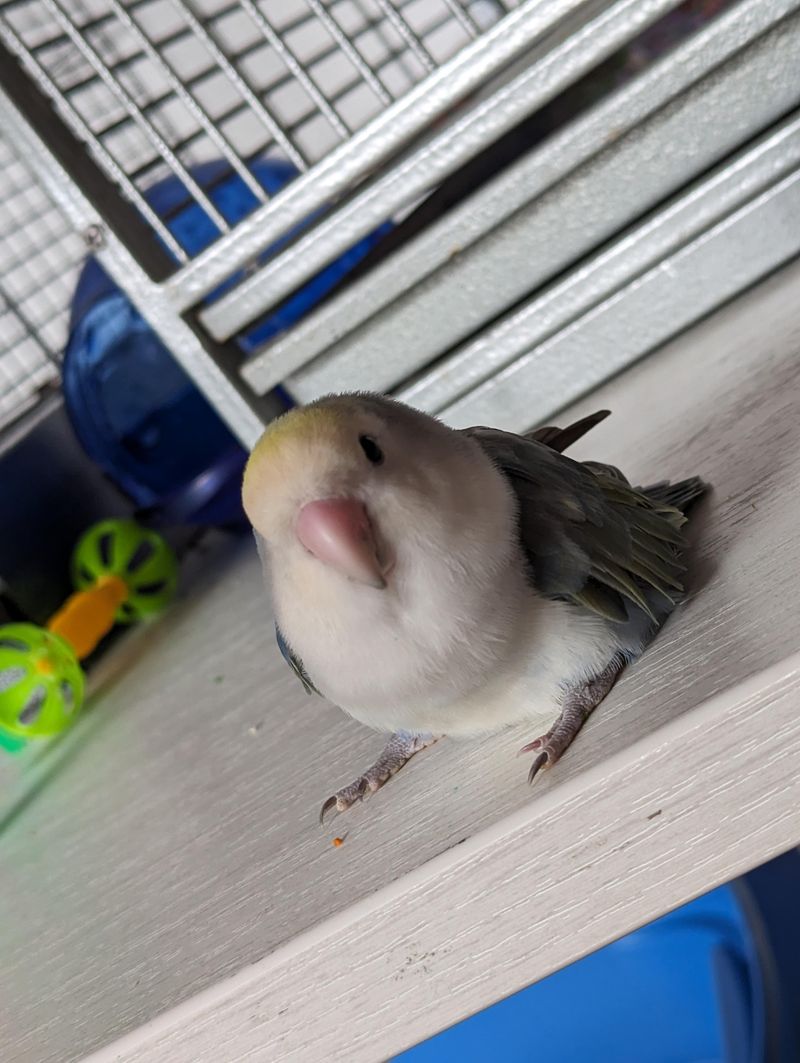
Fluffed-up feathers can indicate discomfort or illness in lovebirds. Birds fluff their feathers to regulate temperature, but persistent fluffiness is a warning sign.
Observe your lovebird’s behavior closely. If it appears lethargic alongside fluffed feathers, seeking veterinary advice is essential. They might be suffering from an infection or other health issues. Warmth and a stress-free environment can provide some comfort, but professional care is pivotal.
Changes in Vocalization
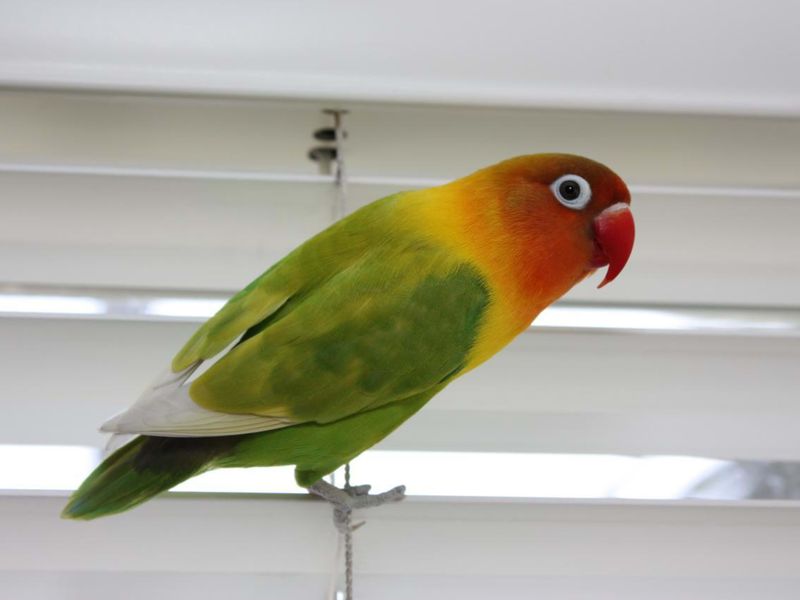
A noticeable change in your lovebird’s vocalization can be a sign of distress or sickness. If your usually chatty bird becomes unusually quiet or its calls sound different, take notice.
Frequent calls for attention that shift to silence may indicate discomfort or depression. Vet consultation is advised to rule out or treat any potential problems. Monitoring the environment for changes that might affect your bird’s mood can also be beneficial.
Lethargy and Weakness
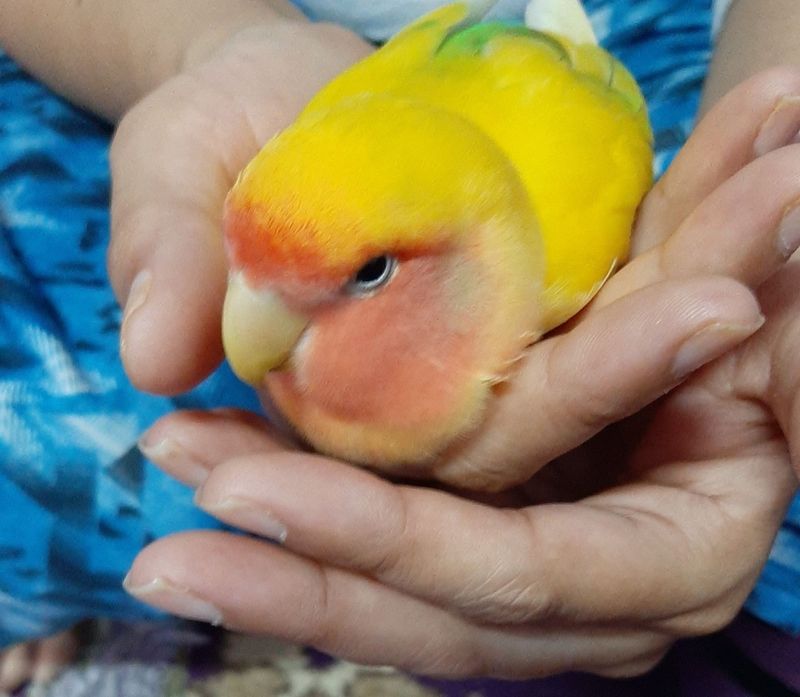
Lethargy is one of the more obvious indicators that something is wrong with your lovebird. If your bird seems more tired than usual or unwilling to move, this could signify illness.
Pay attention to how much time they spend sleeping or resting compared to their normal behavior. Consult a vet to identify possible infections or nutritional deficiencies. Providing a calm space and ensuring access to fresh water and food is crucial.
Visible Lumps or Swellings
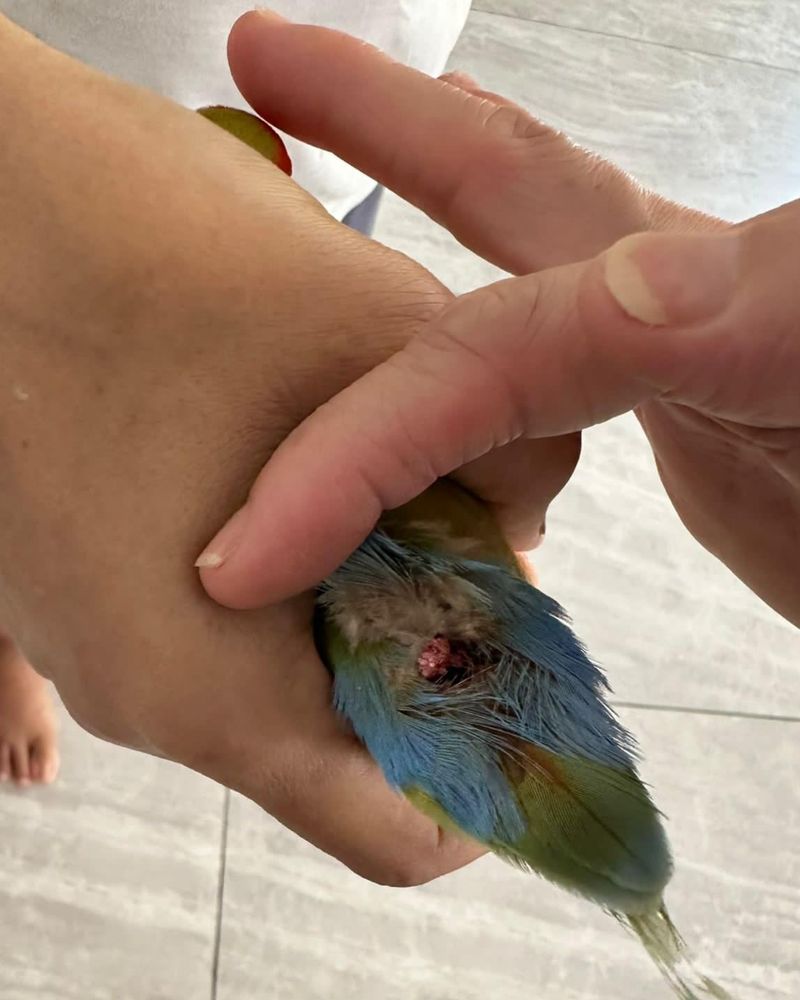
Lumps or swellings can be alarming signs of underlying health problems in lovebirds. These could indicate infections, tumors, or cysts that need immediate attention.
Regularly examine your bird for unusual growths during cage cleaning or grooming sessions. A prompt visit to an avian vet is crucial for diagnosis and treatment. Maintaining a healthy diet and clean environment can aid in prevention.
Respiratory Distress
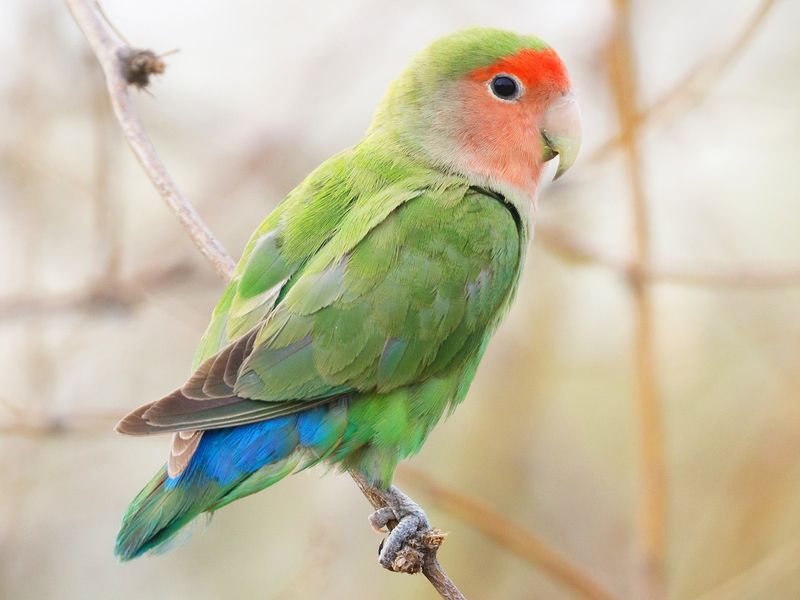
If your bird is showing signs of respiratory distress, such as open-mouth breathing or tail bobbing, it may have an infection or other respiratory issues.
These symptoms are serious and require immediate veterinary care. Dust, strong odors, and drafts can aggravate the condition, so ensure a clean and stable environment. Always keep emergency contacts of avian specialists handy.
Abnormal Droppings
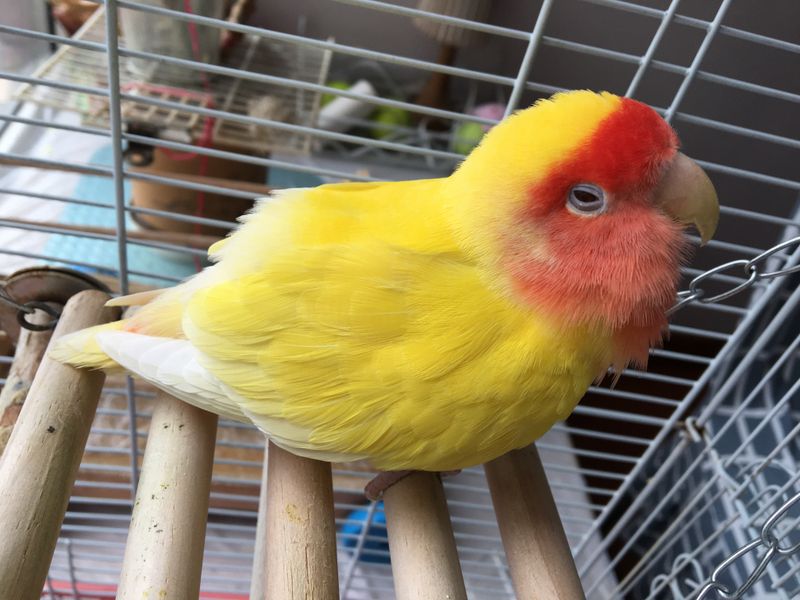
Changes in the color, consistency, or frequency of droppings can indicate health issues. Abnormal droppings might signal digestive problems or infections.
Monitor your lovebird’s droppings daily for any changes. If abnormalities persist, consult your vet as soon as possible. Adjusting the bird’s diet under professional guidance can sometimes help rectify minor issues.
Loss of Balance or Coordination
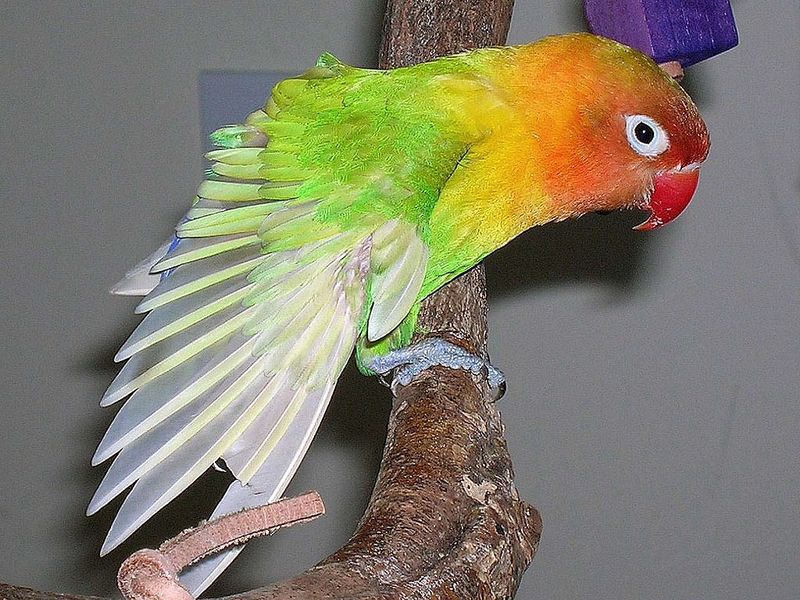
Loss of balance can be a sign of neurological issues or other serious health concerns. If your lovebird struggles to perch or frequently falls, it requires immediate attention.
Observe for other symptoms like head tilting or unusual movement patterns. An avian vet will be able to conduct tests to diagnose the problem. Ensure your bird’s environment is safe to prevent injuries.
Excessive Thirst or Urination
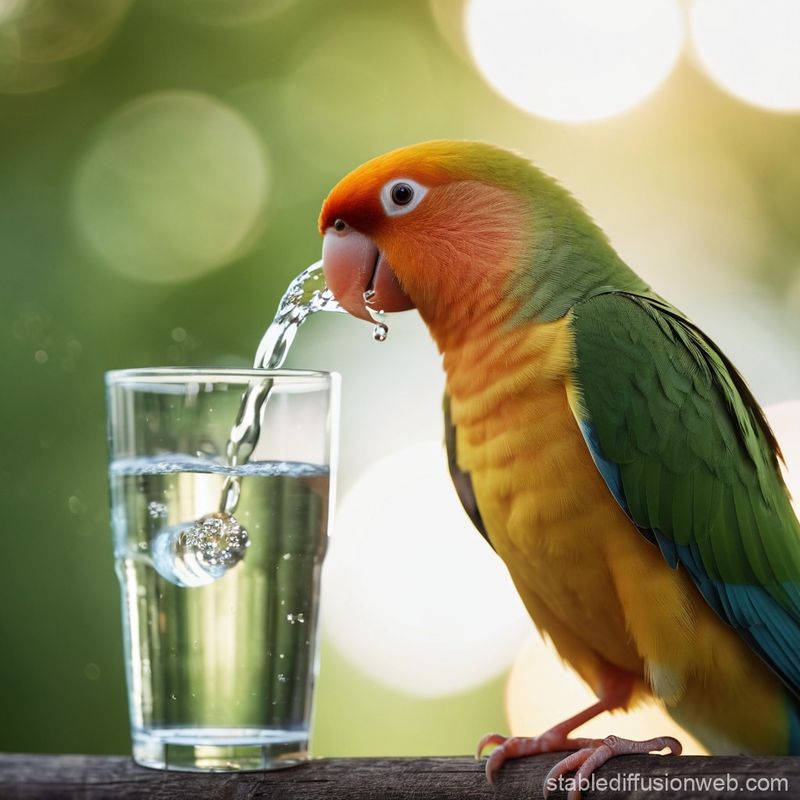
Drinking more water than usual or frequent urination can be signs of kidney issues or diabetes. It’s vital to observe your lovebird’s water intake and waste production.
If these habits change suddenly, contact a vet for a thorough examination. Timely intervention can prevent further complications. Regular check-ups and a balanced diet promote good health.
Feather Loss or Plucking
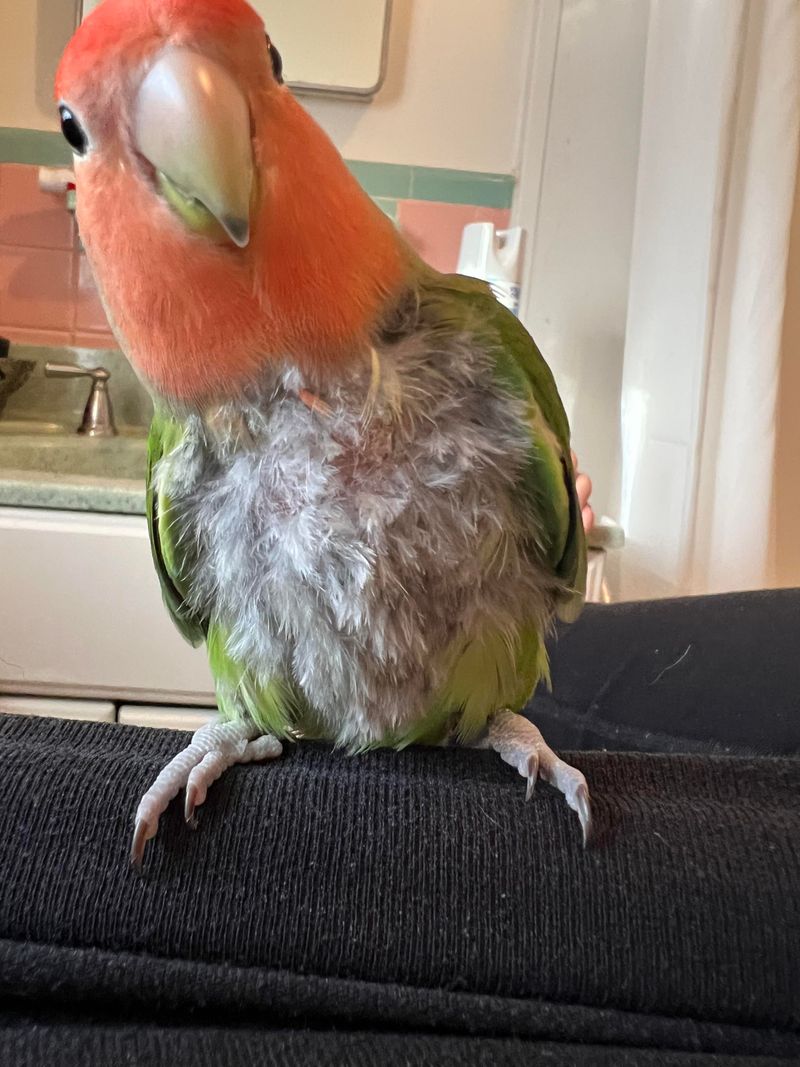
Feather loss beyond the normal molting process can indicate stress, nutritional deficiencies, or skin diseases. If your lovebird is pulling out feathers, it needs help.
Create a stress-free environment and offer enriched activities to distract it from plucking. A vet can provide solutions tailored to the underlying cause. Proper nutrition is essential for feather health.
Discharge from Eyes or Nostrils
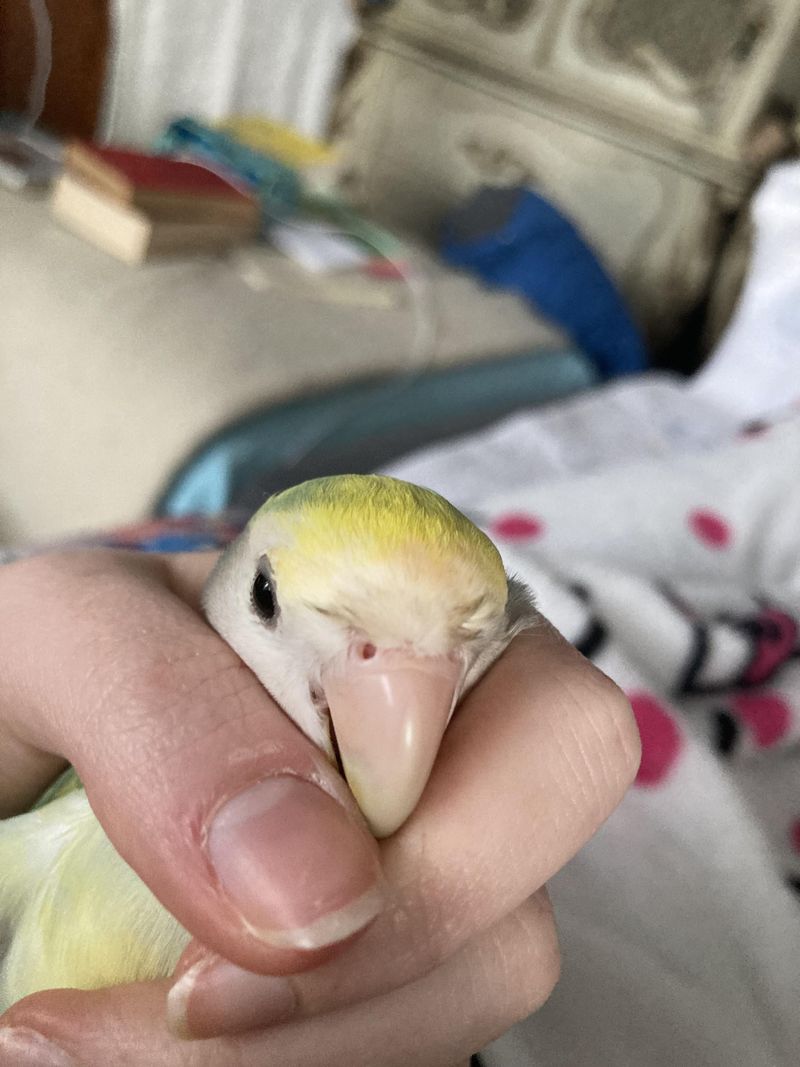
Discharge from your lovebird’s eyes or nostrils often signals an infection or allergies. It’s essential to address these symptoms promptly to prevent complications.
Clean the discharge carefully and observe for redness or swelling. Seek veterinary care to determine the cause and appropriate treatment. Maintaining cleanliness in your bird’s habitat aids in prevention.
Unusual Aggression
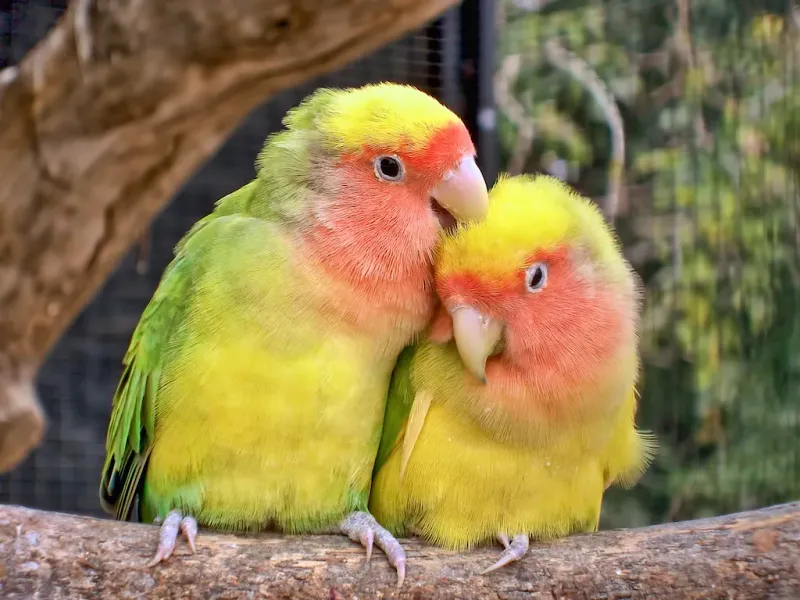
Sudden aggression in a usually docile lovebird can be a sign of distress, illness, or environmental changes. Understanding the cause is key to resolving the behavior.
Observe any changes in their environment or routines that might trigger aggression. Consulting with a vet can help uncover health issues contributing to this behavior. Addressing both physical and emotional well-being is crucial.

